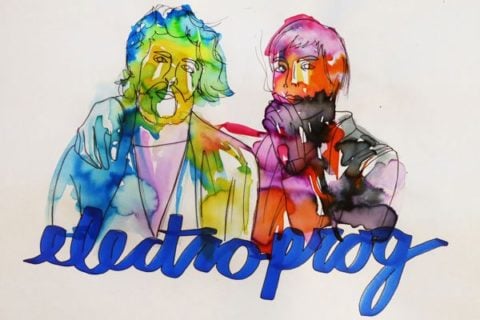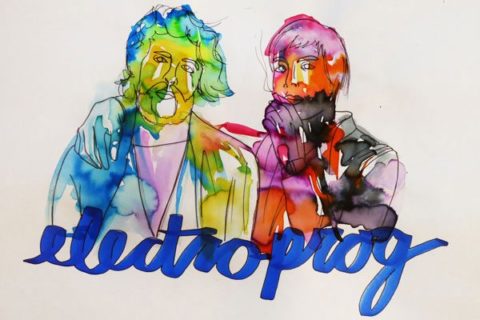SNP’s word of the day: Electro-prog


Word: Electro-prog, or, if you wanna be a super-nerd, electrog
Meaning: Music that combines the tools, mindset, and arenas of electro music with the high-’70s ear-strainingness of prog.
Usage: “Dad, have you heard this new electro-prog masterpiece yet? It’s Justice. I think you’d really like it.” — me
You should know it because: Justice released their long-anticipated-by-white-DJs sophomore record, Audio Video Disco, today, and “electro-prog” is the best way to describe it other than “???” Their 2007 debut, “†,” used rock influences so well that they—two hipster-epitomizing French DJs in biker jackets—became themselves the new rock stars. It’s a record best known for the pervasive single “D.A.N.C.E.,” even though every other track is better, probably, and even now, to hear that song is to a) cringe at my early attempts to be cool and b) smile.
Justice aren’t as super-radicalistic as I thought they were then, and they’re not as lame as I thought they were a year later, when I had moved on to, I don’t know, Crystal Castles. There’s something touching about this new record: its lack of both irony and self-awareness; the way it innocently parodies all the fist-pumping, hair-blowing arena jams your dad used to play when mom wasn’t in the van; the earnest shredding of guitars and painstakingly reproduced drumbeats. Nothing right now sounds like this: progressive electronic music is a hallowed tradition, springing from the experimental composer John Cale in the ’60s, but electro-prog, not so much. All the 21-year-olds now are going to see—someone hold back my hair—Skrillex. Which leads me to my point: the new Justice might not be “good,” but at least it’s not dubstep.







